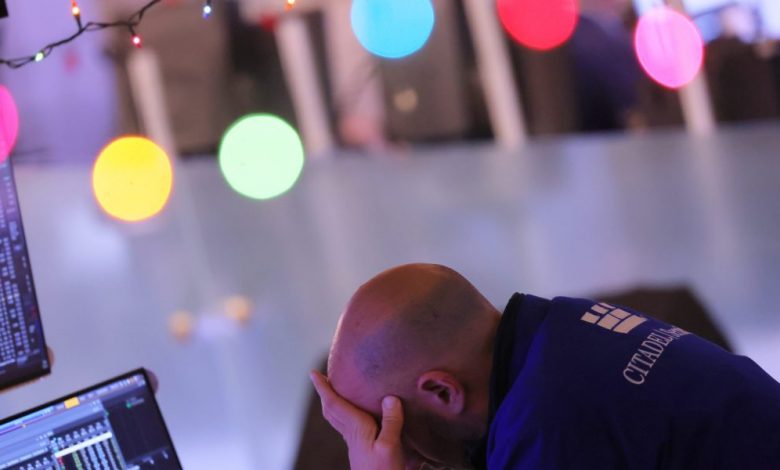Loop Capital analyst says this holiday season was Bed Bath & Beyond’s “last stand of Custer.”

In June 1867, over 700 US troops led by Lieutenant Colonel George Armstrong Custer were defeated by the Lakota Sioux and allied Native American tribes in the legendary Battle of the Little Bighorn, also known as Custer’s Last Stand. It’s rare for Wall Street analysts to point to 19th-century history, but Anthony Chukumba, Loop Capital’s managing director, believes that’s pretty much what we’re seeing at Bed Bath & Beyond this holiday season .
“This really was Custer’s last stand, and it’s going to end pretty much the same as it did for Custer,” he told Yahoo Finance on Wednesday. “We won’t be having the same conversation about Bed Bath & Beyond in a year. Bed Bath & Beyond will be gone.” Of course, Custer didn’t survive Little Bighorn as portrayed in countless books and adaptations, such as: son of the morning star.
If Bed Bath & Beyond ends up going bankrupt, it definitely won’t have gone quietly. The company became a “meme stock” in 2021, surging on interest from retail investors who came together to discuss trades on Reddit’s r/wallstreetbets.
After Bed Bath & Beyond’s initial stock surge in 2021, activist investor and Chewy co-founder Ryan Cohen bought millions of shares in the retail crowd’s favorite and became CEO – raising hopes among investors that he would turn things around .
Shares of the homewares retailer soared nearly 800% between their COVID-related 2020 lows and Meme stock’s 2021 high, boosted by Cohen’s investments and active involvement. Some traders made millions — a 20-year-old USC student even made $110 million — but all the while the company struggled to turn a profit.
Bed Bath & Beyond lost $559 million for the fiscal year ended February and more than $700 million for the combined first and second quarters of this year, the SEC filings show.
Cohen sold his entire stake in a surprise move in August, notching a profit of $68.1 million and triggering the stock’s biggest intraday decline ever. The company’s shares are down more than 84% year-to-date and more than 93% since peaking in 2021 above $35 per share.
After Cohen sold his shares, both he and then-CFO of Bed Bath & Beyond, Gustavo Arnal, were charged in the U.S. District Court for the District of Columbia with operating a “pump-and-dump scheme” artificially inflating the value of Bed Bath & Beyond. Out of stock.
Weeks later, Arnal jumped to his death from Manhattan’s famous “Jenga” skyscraper, prompting calls for an SEC investigation into Cohen’s potential stock-price boosting plan — with former SEC Chairman Jay Clayton saying the regulator will likely catch Cohen’s in a timely manner Check exit.
But for investors, Chukumba had a clear message:
“We don’t have to go through all the things that happened with Bed Bath & Beyond. All you need to know is that they just aren’t relevant anymore.”
Chukumba has been in decline at Bed Bath & Beyond for over a year. In June, he described the company’s earnings report as a “dumpster fire” and warned it was burning cash and rising inventories.
And in August, he said the stock was heading for $1 a share because the company lacked “forward momentum” and would have to raise $500 million just to pay off its current debt and continue operations. This Christmas season has only increased his faith.
Our new weekly Impact Report newsletter explores how ESG news and trends are shaping the roles and responsibilities of today’s leaders. Subscribe here.



